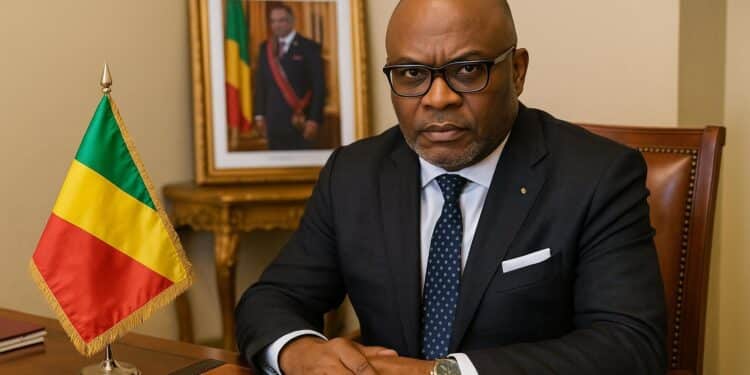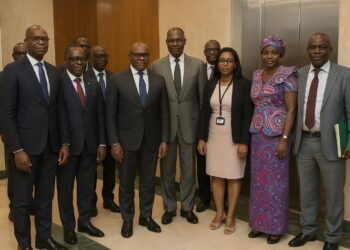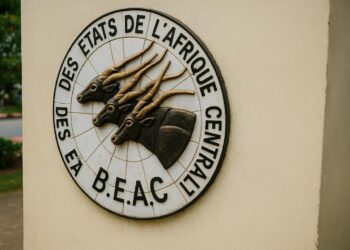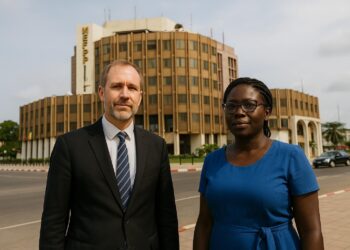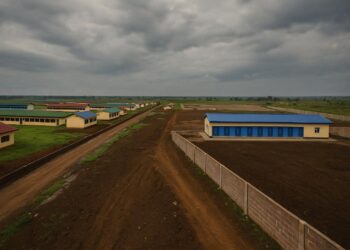Legislative timeline signals strategic intent
During the Africa Energy Week in Cape Town, Hydrocarbons Minister Bruno Jean-Richard Itoua told a packed investor forum that Parliament is scheduled to vote on a dedicated Gas Code before month-end, framing it as the keystone of Brazzaville’s diversified energy ambition.
The announcement aligns with Congo’s National Development Plan 2022-2026, which encourages monetising domestic gas to cushion public finances against oil volatility while meeting industrial demand for reliable power and feedstock. Officials argue that clearer rules will narrow project risk premiums and unlock cheaper long-term capital.
Tax carrots and regulatory clarity
Draft provisions seen by advisory firms propose royalty rates as low as five percent on non-associated gas, accelerated cost recovery, and a ten-year exemption on customs duties for critical equipment, provided operators commit to flare reduction and local content targets. Analysts deem the package regionally competitive.
“Investors need predictability; we need their technology,” Minister Itoua summarised, indicating that negotiations with majors and independents shaped the bill. He insisted that fiscal incentives remain balanced with state revenue needs, pointing to a sliding scale mechanism designed to rise gently with Brent-linked price benchmarks.
Resource base attracts deep-water specialists
Congo hosts proven gas reserves of roughly ten trillion cubic feet, mostly offshore within Marine XII where Eni, Trident Energy and Wing Wah already drill alongside domestic partners. Studies by Wood Mackenzie highlight the liquids-rich quality of discoveries such as Litchendjili and Minsala, boosting project economics.
Encouraged by the pending code, the ministry plans a licensing round by December covering ultra-deep blocks north of Pointe-Noire and near the Gabon border. Data rooms are being prepared, and officials promise streamlined environmental approvals to shorten the path from bid to first gas below seven years.
Gas-to-power ambition underpins demand
Natural gas supplied 72 percent of Congo’s electricity in 2022, according to the International Energy Agency. New capacity additions, including the 420-megawatt Djeno combined-cycle plant under development, could lift contracted offtake to two hundred million cubic feet per day once commercial operations begin in 2026.
Domestic consumption matters politically because the government targets universal access by 2030. The Gas Code therefore reserves 15 percent of future production for the local market at regulated prices, a clause that advisers say mirrors Indonesian and Mozambican precedence while still allowing flexible LNG export volumes.
Floating LNG puts Congo on export map
Eni’s FLNG Nguya, commissioned earlier this year, loaded its inaugural cargo in February and is ramping toward three million tonnes annually by late-2025. The vessel provides a modular path to monetise smaller fields, reducing the need for costly pipelines and onshore liquefaction trains.
Cargoes are marketed on long-term contracts indexed to Dutch TTF, diversifying state revenues beyond African crude grades. Government sources estimate LNG exports could add up to eight hundred million dollars in annual fiscal inflows once nameplate capacity is reached, underpinning the medium-term budget framework.
Balancing transition rhetoric and realpolitik
International climate finance actors urge Congo to leverage its vast Congo Basin forests while gradually curbing fossil dependence. Officials counter that gas remains a pragmatic bridge fuel, able to displace imported diesel and support petrochemical clusters that create skilled local employment.
The draft code incorporates sustainability clauses covering carbon capture incentives, methane monitoring, and adherence to forthcoming Global Methane Pledge guidelines. Companies that exceed benchmark emissions may face escalating fees, a feature one civil-society observer described as “soft compliance that acknowledges capital constraints”.
Investor mood cautiously upbeat
At the Cape Town forum, representatives from TotalEnergies and Perenco signalled interest in the upcoming tenders, citing proximity to existing infrastructure and the improved tax framework. A London-based energy banker noted that risk insurance premiums for Congolese projects have already narrowed by forty basis points month-on-month.
Yet financiers still watch parliamentary timelines closely. Delays could collide with 2024’s global LNG supply rush and reduce headline valuations. Minister Itoua responded that cross-party consultations have trimmed contentious clauses and expects “swift, responsible debate”. The Senate has slated a fast-track reading for the third week.
What comes next for stakeholders
Should the code pass, the ministry will issue implementing decrees within ninety days, including standard production-sharing templates and unitisation rules critical for contiguous reservoirs. Companies preparing bids are advised to finalise seismic re-processing and local-partner screening now to secure first-mover advantage.
For investors weighing entry, Congo offers scale, political continuity and a clear pivot toward gas within a pragmatic energy transition. With legislative certainty looming, analysts suggest the window is opening for capital to meet opportunity in Central Africa’s most promising frontier gas province.

































